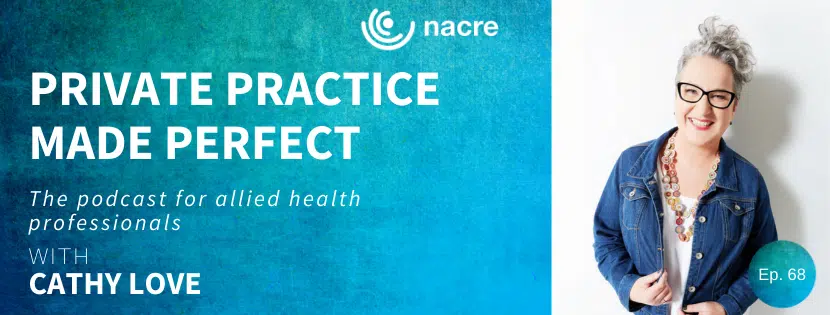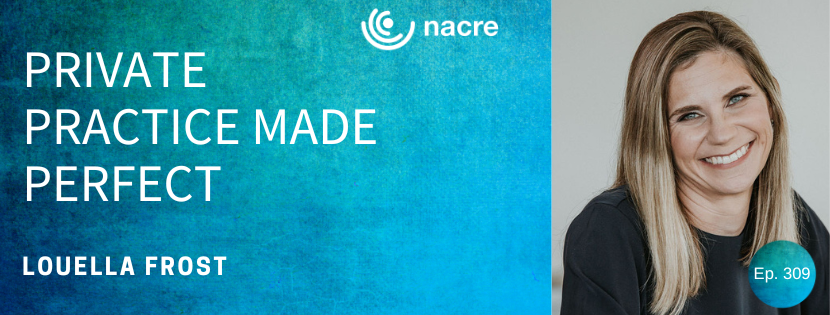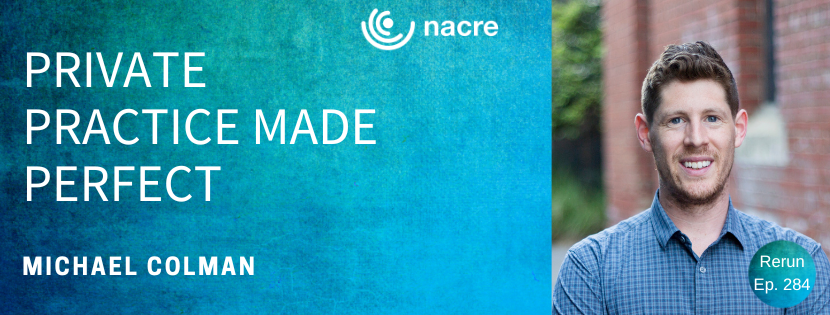When it comes to ensuring a successful allied health business, or any business for that matter, a business plan is a must.
The power of the one-page business plan is often overlooked because business owners say they don’t have enough time to develop one. Some say they want to and might even start the planning process, but never have quite enough time to finish it. It’s not easy to implement, let alone when it isn’t fully baked. But I think if you fail to plan, you plan to fail.
Subscribe here: Apple Podcast, Stitcher, Subscribe on Android, Player.fm, RSS
Increased competition, increased opportunities
I’ve seen and worked with many allied health business that are absolutely rocking it, and they’re the ones with a really solid, strategic plan in place. They’ve also got an operational plan in place for how to make the business plans spring to life day after day, week after week, month after month.
The reason this planning process works so well is because the allied health industry, particularly the disability sector, is moving very fast.
So if you’re a business owner thinking you’re just going to have another year of doing the same stuff that will yield the same results, I want to encourage you to recognise that may not be the case.
If you’re going to be putting your energy into a year or more of the same and a year of consolidating, I suspect your results won’t be the same. Your results will actually drop. That’s because the pace of the industry changes, as does the number of providers.
More and more businesses will come into the marketplace that may have different energy to you, and perhaps even be a little more assertive. Therefore, it will be these businesses that step forward to grab the personal, team, professional, business and customer opportunities available.
Preparation is key
Don’t assume coming up with a business plan means blood, sweat and tears. There is actually an easier, smoother, somewhat more creative way of getting this stuff done. All you need to do is prep.
You’re going to have to block out some time in your calendar, jump into your accounting software and your practice management software and pull some reports.
Start with what you already know; think about your business numbers, your finances. A lot of allied health business owners say their business plan is all tucked away in their head. The power of developing a really great business plan is releasing it from your head onto pixel or onto paper. It makes a massive difference to mindset; it really lifts optimism amongst you and your team.
As well as helping with recruitment and team retention, it adds a spring to your step as a leader and rolls through to your customer outcomes.
Take action
I encourage you to think about the actions you’re going to take in order to develop a good business plan. Often, business owners do a lot of thinking over the holidays and come to start planning in January. January is a little too late, but it’s better than nothing. Imagine what you could achieve if you plan ahead.
Nothing beats stepping into a new year feeling proud of the work you’ve done to achieve your future goals. It saves a lot of time and can put you quite a way ahead of the pack too.
To help allied business owners in the past, I’ve carried out a business planning virtual workshop. We spent an afternoon getting the business planning process done using a framework – my seven success factors for private practice.
We worked through each ‘success factor’ together, making notes of the three biggest projects in each factor in our workbooks, and followed it up with podcasts, videos, recordings and relevant blogs.
The magic happens when you can see it all visually and you’ve got some priority projects in place. It really helps you implement the business plan if you can see where the projects have come from, the needs and challenges and opportunities that they’re based on, and knowing they’re all ready to go.
Think outside the box
My virtual workshop helped business owners think outside the box, outside their normal operational mindset. I hope the document we used will help you too. It’s essentially a recipe book for how to develop your business plan and you can do it at any point in time.
Whilst it is a calendar year and we’ve timed it for such, this same exact business planning process applies across a financial year. The structure isn’t time sensitive.
Working all your goals into a one-page business plan makes you feel proud, confident and really makes you feel like the business owner you aspire to be.
I’ll leave you with this: where is your business plan at right now for the business you want in 12 months’ time? How can you make that business planning activity happen as soon as possible?







